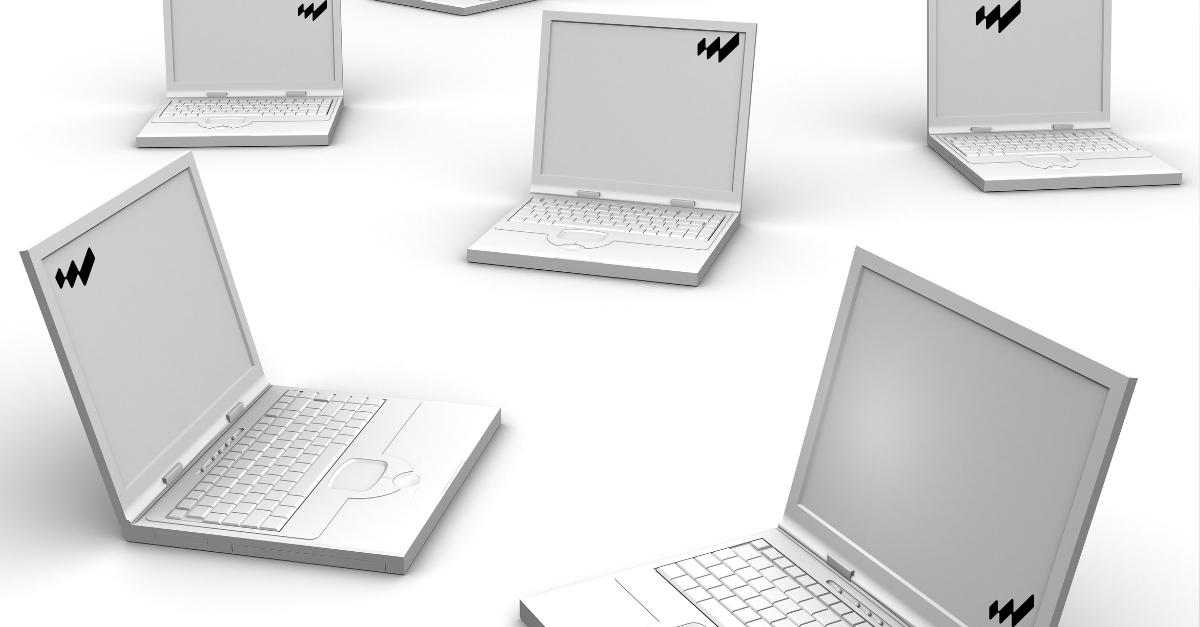Where to Get Enterprise Laptops? Here's Your Answer.

Once upon a time, sourcing enterprise laptops was simple: call your vendor, place an order, and move on. But in 2025, global work has changed the rules.
Today’s IT leaders don’t just manage devices—they navigate geopolitical tensions, supply chain breakdowns, environmental compliance, and the relentless expectations of a distributed workforce.
And all it takes is a delayed laptop delivery to stall productivity, trigger frustration, and hurt your brand’s credibility. That’s why more companies are ditching outdated procurement models and moving toward effortless IT management.
As Michiel Meyer, CEO of Workwize, puts it:

Why enterprise laptop sourcing is broken
If you’re still ordering laptops through bulk vendors or juggling regional providers, chances are you’re dealing with:
-
Tariffs and trade restrictions from Section 301 and beyond
-
Shipping slowdowns from congested ports and customs hold-ups
-
Inconsistent pricing and availability from region to region
-
Manual coordination overload between HR, IT, and procurement
-
Compliance gaps in data handling, e-waste, and reporting
The result? Employees wait weeks for tools, and IT teams are trapped in reactive mode.

5 Options to Source Enterprise Laptops From
1. OEMs (Original Equipment Manufacturers)
Best for: Large enterprises with high-volume needs and dedicated internal IT teams
Examples: Dell, HP, Lenovo, Apple
Going directly to OEMs is often the most cost-effective and scalable option for large companies.
Advantages:
-
Access to volume discounts and business pricing tiers
-
Custom configurations tailored to your tech stack (RAM, SSD, OS)
-
Access to longer warranties and lifecycle support
-
Dedicated account managers and priority support
Considerations:
-
May require high minimum order volumes
-
International logistics and support may be limited or complex
2. Authorized Resellers & VARs (Value-Added Resellers)
Best for: Mid-size companies or those needing bundled services
Examples: CDW, SHI, Insight, Zones, Computacenter
VARs bridge the gap between OEMs and buyers by offering additional services like configuration, imaging, and installation.
Advantages:
-
Hardware procurement bundled with support, software, and accessories
-
Global sourcing and logistics expertise
-
Pre-sales consultation for matching devices to job roles
Considerations:
-
May come with higher markups compared to OEMs
-
Need to manage multiple vendors for software and hardware
3. Global IT Asset Management Platforms
Best for: Distributed teams, hybrid workforces, and fast-growing startups
Examples: Workwize, Firstbase, Deel (with hardware support)
Workwize is a full lifecycle IT asset management platform, offering zero-touch global IT procurement, deployment, management, and retrieval.
Why Workwize?
-
Full lifecycle coverage: Procure, deploy, manage, retrieve, and dispose
-
Localized logistics: Deliver laptops from local warehouses in 100+ countries, reducing customs delays and CO2 emissions
-
Pre-configured devices: Shipped with your company’s MDM policies, ready to go out of the box
-
Automated workflows: Integrates with HRIS and ITSM systems to eliminate manual IT admin tasks
-
Real-time dashboard: Track assets, orders, and repairs in one place
Case Study: HighLevel Workwize helped HighLevel save $1.4M/year by centralizing global procurement and automating asset tracking. They eliminated time zone delays, achieved pricing consistency, and reduced manual IT work.
Considerations:
-
Typically priced per-user or per-device
-
Some catalog limitations based on regional partnerships
4. Managed Service Providers (MSPs)
Best for: Small to mid-size companies outsourcing IT management
Examples: Electric.ai, Ntiva, Impact Networking
MSPs not only source hardware but also manage your entire IT infrastructure, from provisioning to tech support.
Advantages:
-
End-to-end device lifecycle management
-
Remote IT support and maintenance
-
Subscription pricing (OPEX instead of CAPEX)
Considerations:
-
Less control over device selection
-
Not ideal for companies with advanced or custom IT requirements
5. Refurbished & Leasing Providers
Best for: Budget-conscious teams or businesses with high contractor turnover
Examples: Back Market for Business, TRG, TechReset, HardSoft
These providers offer certified pre-owned or short-term lease options for enterprise devices.
Advantages:
-
Lower upfront investment
-
Great for short-term hires or trial periods
-
Eco-friendly and often faster to ship
Considerations:
-
Shorter warranty periods
-
Not all refurbished devices are enterprise-grade
Ready to simplify enterprise laptop sourcing?
Choosing the right enterprise laptop sourcing strategy is more than a procurement decision—it’s a strategic move that affects IT efficiency, employee productivity, security, and long-term cost.
For global or remote-first companies, platforms like Workwize offer unmatched benefits:
-
Seamless, automated workflows that save IT managers up to 40 hours/month
-
Localized warehousing and delivery to minimize logistics hassle
-
Full lifecycle support from procurement to disposal—all on one platform
Whether scaling your workforce, transitioning to hybrid models, or streamlining your IT processes, Workwize enables you to support employees in 100+ countries without the overhead.
About the authors:
Simplify IT operations with Workwize
Learn how Workwize makes IT asset management easier and more efficient. Schedule a custom demo today and see the difference.
Recent articles
NYDFS 500.13 Compliance: How Workwize Simplifies Asset Management and Data Retention
November 1, 2025: Financial Institutions Must Meet NYDFS 500.13 Compliance on Asset...
Workwize Expands to South Africa: Streamlined IT Asset Management for the African Continent
South Africa is emerging as one of Africa’s most crucial remote work and business process...
Ready to optimize your remote on- and offboardings?
Let’s schedule a short chat and see how we can help!






